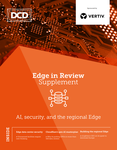Enterprises today are at a pivot point – we have more data, more data consumers and more regulations that govern proper data use than ever before. Business-critical data is housed across numerous enterprise applications and systems, and multiple clouds, including data lakes and warehouses. Its value is undisputed - however, sharing trusted data for use is challenging. The vhief data and chief data & analytics officer community knows that, for data to be a dependable resource for generating meaningful value, it must be protected from misuse, and with assurances of its high quality, which requires reliable data governance.
To arrive at our end game of safe and trusted data democratization and create more business value that can drive new revenue initiatives, we need to apply automated, analytic insights that enable the data transparency required to make intelligent, guided decisions on appropriate data use, whether in the cloud or on-premises as hybrid environments and data sources continue to evolve.
Democratized data is a top challenge
Data quality, data privacy and, more broadly, data governance as a framework for instilling trust are consistently ranked as the top challenges in data management. As data democratization increases in importance for business transformation, the number of non-technical data consumers who want easy self-service access to data for their use, but at the same time are not well-prepared to govern data responsibly, continue to grow.
As expected, outcomes of your data governance journey, data quality and privacy are critical to supporting enterprise-wide data literacy to drive business value with trust assurance. Reducing operational risks and empowering responsible data use is vital. So, how can data governance become an accelerator rather than a liability? Let’s take a closer look.
While increased use of AI and automation can accelerate value creation results, a foundation of trusted data is required to democratize data use across the organization. This can support the business with faster, broader and more accessible data sharing opportunities to enable operational reporting and analysis, and empower more data-driven decision-making with the broader intelligence needed, incorporating new data sources.
Democratizing data in practice
Instead of keeping data locked up so only data scientists and other experts can access it for limited use in value creation initiatives, you make it available to the masses with trust for a wide range of opportunities. You empower more of the knowledge workers in your organization to use it to perform their jobs with the transparency needed that aligns consistently to your organizational policies for approved data use to derive value from it responsibly. On a practical level, this means creating a data marketplace as a source for data sharing activities to accelerate consumption and use with trust assurances.
Ultimately having reliable data governance in place helps the enterprise data community answer critical, relevant questions with transparency by providing much-needed insights, such as:
- Where is the data? How do I quickly discover it? And when I do find it, how do I understand its context for relevant use?
- Do I trust that this data is qualitative and safeguarded for proper use?
- Can I access and move this data to analytic applications from warehouses, or cloud data lakes, and other sources to understand its business relevance?
Your data community needs to enable the various lines of business to deliver on trusted value creation opportunities with data quality assured, all while protecting privacy to align with internal and external mandates (the GDPR, the CCPA, LGPD, PDPA and others). For data stewards, the ideal state is for data consumption to be governed appropriately, in line with enterprise policies for data exposure and use that generate expected value while minimizing risks.
With a foundation of data governance in place, cloud data marketplaces enable all of this in an intuitive ‘shoppable’ interface. Users spend less time looking for data manually, spread across the organization, and spend more time making better decisions with trusted data. In today’s multi-cloud, hybrid world, where 92 percent of enterprises have a multi-cloud strategy, data is housed in varying data lakes, warehouses and SaaS systems. CDOs should consider whether their chosen data marketplace can onboard data from internal systems and any cloud source or a third-party tool. This means that users can leverage existing data sets immediately, without the need for additional curation before it is available for use. This vastly expands the pool of data consumers being supported, accelerates time to value and gives valuable time back to data scientists and business users who can find, understand and begin using trusted data without delay.
Your organization has tremendous opportunities within its grasp; opportunities that spring from connecting your trusted data to your people so they can use it to accelerate your value creation agenda. As you empower data use across the organization, the intelligence gleaned from this data can be used to power innovation that in turn drives greater customer loyalty, more accurate analyses, extra-competitive product and service offerings and dramatically more efficient operations.





